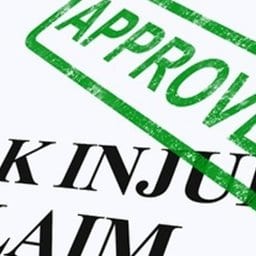
New Jersey is getting ready for the first major winter storm of 2019. One major hazard of this storm that we don’t come across often is a Flash Freeze. This refers to a rapid and significant drop in temperatures, causing any standing water to freeze on roadways and sidewalks.
Here’s a great summary we received on the potential impacts of the Flash Freeze from top New Jersey weather resource Jonathan Carr. Carr is better known as JC to the 232k+ facebook followers on his Weather NJ page.
“Lastly, once precipitation clears out to the East Sunday afternoon, temperatures will continue to drop well-below freezing statewide. By sunset on Sunday you should really feel the bitter cold. Any moisture on the ground that has not yet evaporated will absolutely freeze. This especially goes for road treatments that might have been washed away by the warmer second phase of rainfall. We haven’t faced a flash-freeze scenario like this in a long time. Therefore the greatest safety hazard of this phase will be slippery road conditions from about sunset on Sunday into the bitter-cold overnight hours into Monday morning. Wind chills should be wicked with many values BELOW-ZERO for much of the state.” (JC, WeatherNJ)
As stated above, when this major winter storm is winding down, the danger may only be beginning on the roads of New Jersey.
As a law firm that specializes in truck accidents, car accidents and rear-end crashes, we know how much driving in wintry weather can lead to major accidents.
With this storm heading our way, it’s a good time to separate facts from fiction when it comes to winter driving.
Top Wintry Weather Driving Myths
Myth #1: Most serious icy road crashes are caused by careless drivers.
Studies indicate that most serious weather-related car accidents and truck accidents result from drivers who were NOT operating their vehicles in a careless manner. In most cases, they are driving normally at reasonable speeds when they suddenly encounter ice and crash.
“Wait, then does that mean my chances of staying safe are actually better if I drive carelessly and at higher speeds?”
Of course not wiseguy.
Myth #2: I’m a good driver, and I have the skill and experience to drive highway speeds in ice and snow conditions.
On the contrary, a common factor in many of the most serious and fatal auto crashes is overconfidence in one’s abilities and/or equipment.
Myth #3: Winter tires, 4WD, AWD, stability control, ABS and/or traction control allow for safe travel on icy roads at highway speeds.
“The reality is that there is no technology, no tire nor any vehicle type that allows SAFE travel on any type of icy road (snow, sleet or freezing rain) at speeds greater than 45 mph. Not traction control, electronic stability control, 4WD, AWD, anti-lock brakes or the most expensive brand-new snow tires.” (iceroadsafety.com)
Myth #4: Everyone should buy winter tires – that would prevent most icy road accidents.
See myth # 3
Myth #5: The worst icy road dangers are during big winter storms.
With this weekend’s storm coming, everyone is on high-alert and hopefully ready to take precautions to avoid travel. However, it’s those times that sneak up on drivers where the real danger begins.
We only need to look back to our surprise November snowstorm that wreaked havoc across our area to understand this concept.
“The road ice hazard isn’t the minor fender-benders or slide-offs common during snowstorms. The real danger is the serious, highway-speed crashes during light icing events that take drivers by surprise. Most accidents in snowstorms happen at the onset of the storm or on its fringes, where accumulations are lower.” (iceroadsafety.com)
Myth #6: Salt, sand and plow truck crews are there to make roads safe for high-speed travel during snow and ice conditions, 100% of the time.
New Jersey’s road crews work extremely hard plowing and salting the roads to keep them passable. However, they can only treat so many roads at a time and sometimes keeping up during a storm just isn’t possible. Regardless, even roads that are treated aren’t usually in ideal condition or safe for traveling at highway speeds.
Many are expected to see this storm start as snow, change to ice, change to rain then go back to snow before a FLASH FREEZE settles in as .
This will mean the salt on the roads is washed away by the change to rain, only for the snow to return and have everything freeze over.
Myth #7: Icy roads are a bigger threat in colder climates where ice and snow is common.
“The fatality and death rates per mile and per hour of winter precipitation events are actually higher in regions that only see a handful of snow and ice events each year.”
STAY SAFE OUT THERE!
MINTZ & GEFTIC – New Jersey Wintry Weather Accident Lawyers
All car accidents and truck accidents require NO FEE unless we are successful in securing you a recovery to compensate you for your injuries and pain and suffering.
We give personal attention to all of our clients. If you or a loved one has been injured in a car accident, truck accident, rear end accident or pedestrian accident, call the best New Jersey injury lawyers today at 908-352-2323.
If you were injured driving while working call us today at 908-352-2323. If you prefer contacting our injury lawyers via email, please click here.
Our injury lawyers serve clients throughout New Jersey. This includes the cities of Newark, Elizabeth, Union, Short Hills, Millburn, Livingston and Jersey City. We cover Morris, Bergen, Essex, Hudson, Union and Middlesex counties. Our accident lawyers have offices in Elizabeth, New Jersey, Short Hills, New Jersey and in New York City.
We represent clients suffering with spinal cord injury, back injury, burn injury, broken bones and traumatic brain injury.
If you are enduring physical pain and suffering, mental pain and suffering, permanent disability, disfigurement, lost wages, medical expenses or any other hardship resulting from an accident please contact us today for a free consultation.
sources:
iceroadsafety.com
4










